News
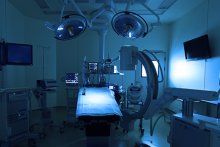
Jaw fracture device based on U of M technology receives FDA approval
Posted
A new, non-invasive device to support jaw fracture recovery based on University of Minnesota research has received clearance from the U.S. Food and Drug Administration.
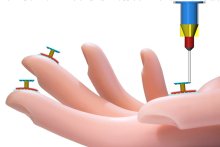
3D-printed ‘bionic skin’ could give robots the sense of touch
Posted
Engineering researchers at the University of Minnesota have developed a revolutionary process for 3D printing stretchable electronic sensory devices that could give robots the ability to feel their environment.
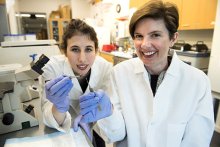
3D-printed patch can help mend a ‘broken’ heart
Posted
A team of biomedical engineering researchers, led by the University of Minnesota, has created a revolutionary 3D-bioprinted patch that can help heal scarred heart tissue after a heart attack.
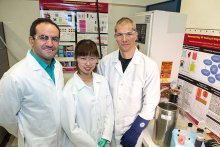
Groundbreaking technology successfully rewarms large-scale tissues preserved at very low temperatures
Posted
University of Minnesota researchers have discovered a groundbreaking process to successfully rewarm large-scale animal heart valves and blood vessels preserved at very low temperatures. The discovery is a major step forward in establishment of tissue and organ banks.
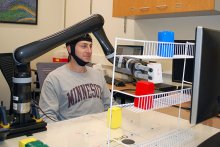
University of Minnesota research shows that people can control a robotic arm with only their minds
Posted
Researchers at the University of Minnesota have made a major breakthrough that allows people to control a robotic arm using only their minds.

New discovery could help oral medicines work better
Posted
A team of researchers from the University of Minnesota and The Dow Chemical Company have discovered a new method for customizing ingredients that help oral medications dissolve in the body and be absorbed into the bloodstream. The materials discovered in this study could allow life-saving drugs to work faster and more efficiently.

University of Minnesota researchers win Breast Cancer Challenge Award
Posted
The University of Minnesota is one of two grand prize winners in the National Cancer Institute’s Up for A Challenge (U4C) Breast Cancer Challenge Award that will help further the University’s innovative work in exploring genetic connections in breast cancer research.
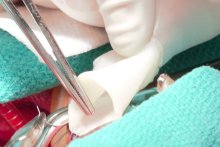
Artificial blood vessels developed in the lab can grow with the recipient
Posted
In a groundbreaking new study led by University of Minnesota biomedical engineers, artificial blood vessels bioengineered in the lab and implanted in young lambs are capable of growth within the recipient.

Landmark genetic interaction map reveals the networks of cellular life
Posted
A new study, involving University of Minnesota researchers, is no longer looking at genes as loners, but instead as social network of the body, interacting in groups. The new approach may ultimately change our understanding of the genetic roots of diseases.

University of Minnesota named a Udall Center of Excellence in Parkinson's Disease Research
Posted
The University of Minnesota has been named a Udall Center of Excellence in Parkinson’s Disease Research, joining eight other centers around the country. Biomedical engineering faculty will lead project exploring novel brain stimulation approaches.
